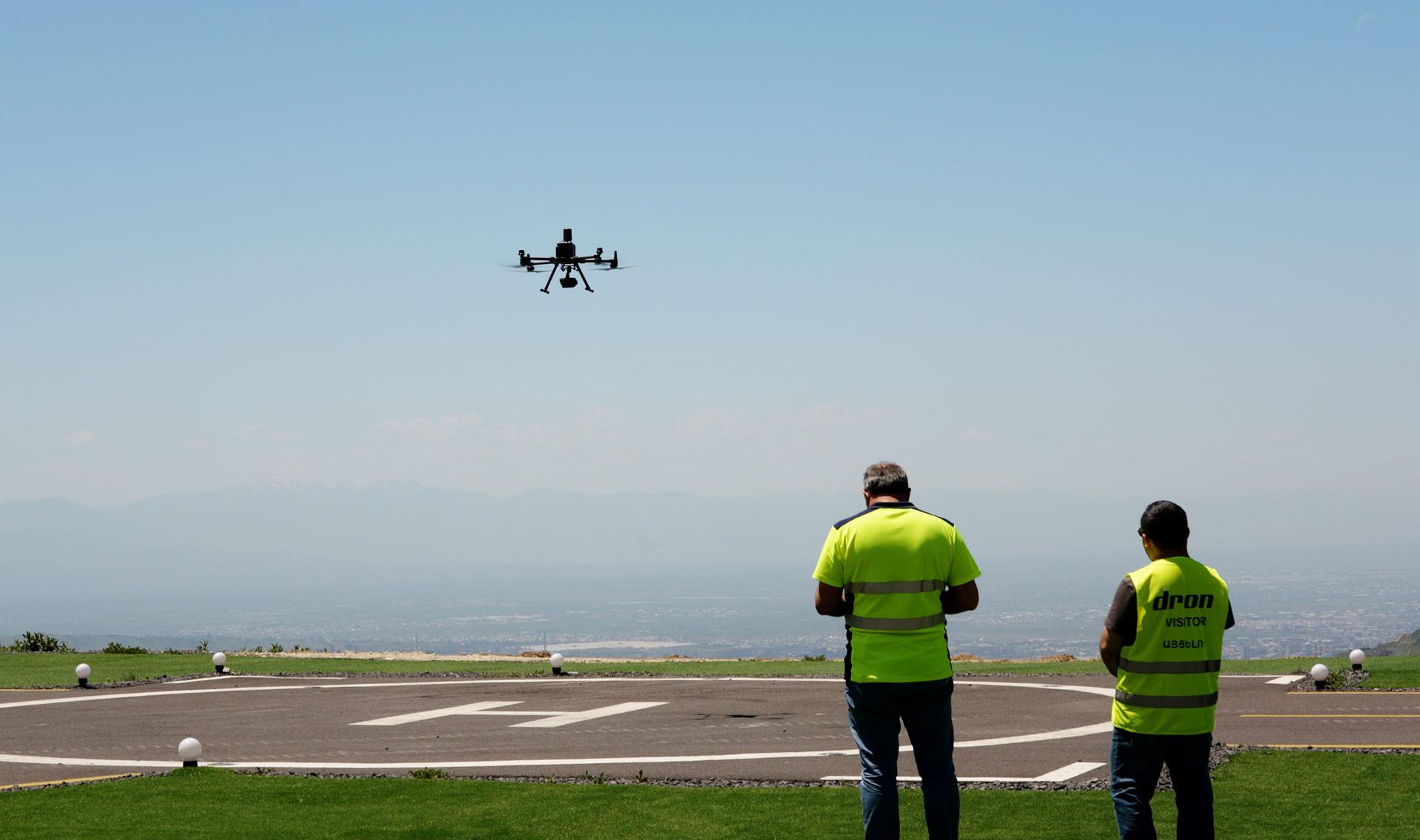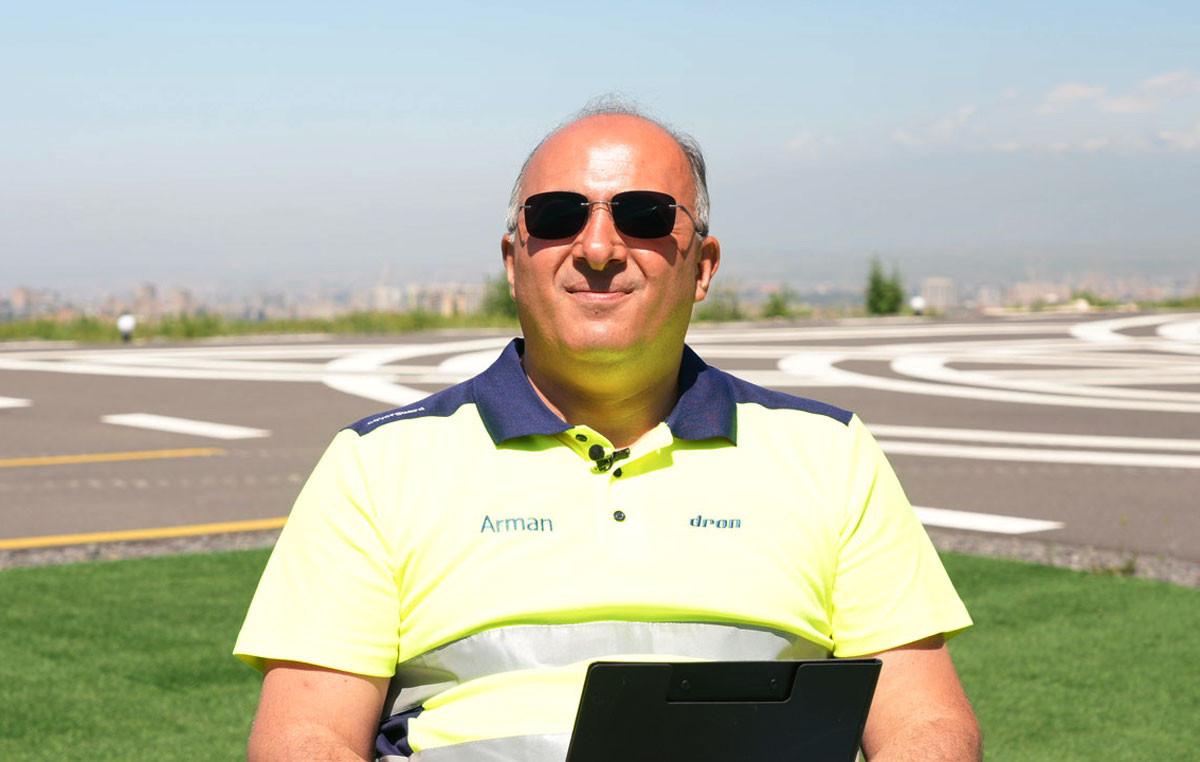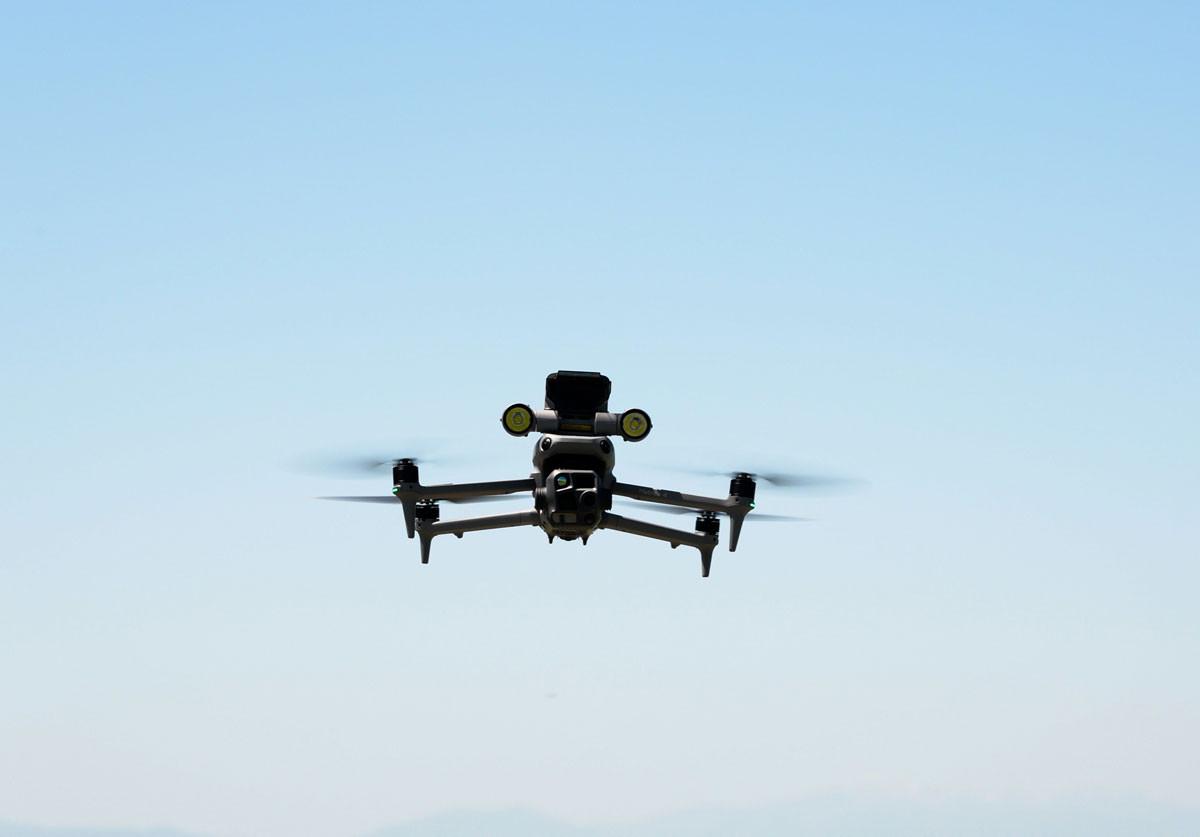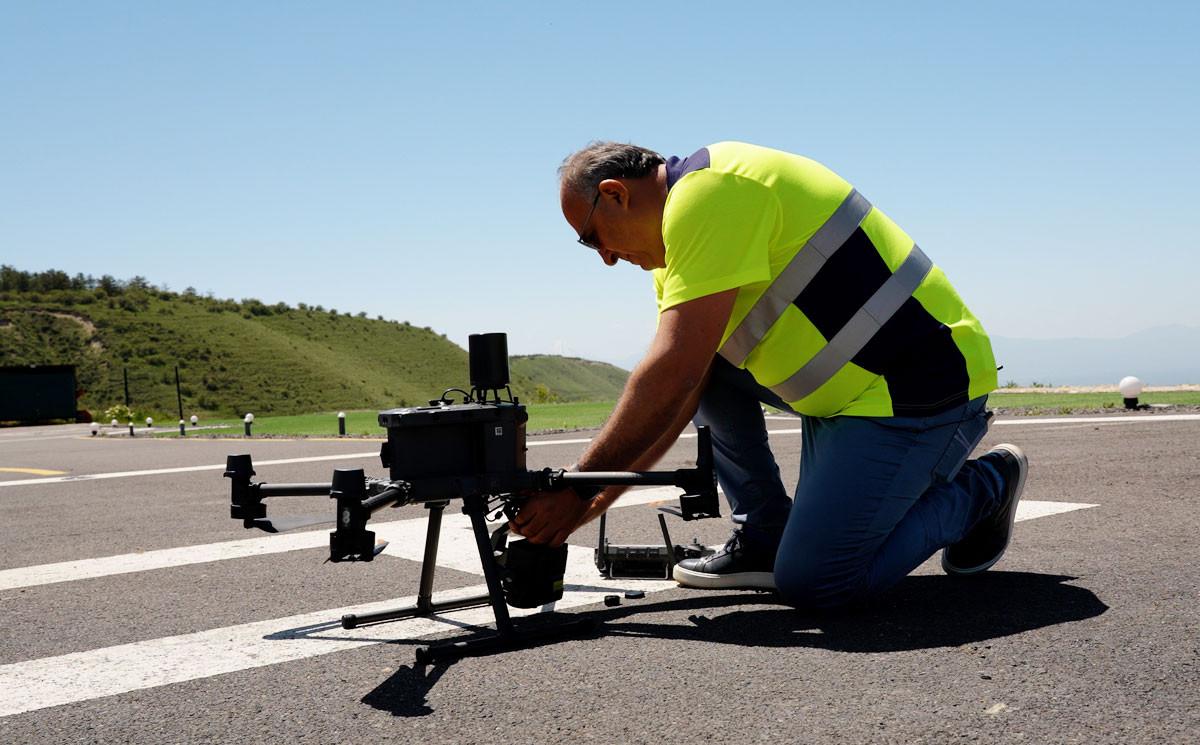
A Bird’s Eye View: Entrepreneur Sees Huge Potential for Industrial Drone Applications in Armenia
Arman Baghdasaryan, who lived and worked for many years in Australia, is on a mission to use drones to collect data on various sectors of Armenia’s economy and provide it to potential commercial customers.
Baghdasaryan’s Dron LLC bills itself as a professional industrial drone operator offering cutting edge technology applicable for surveying and mapping of construction sites, land development, and environmental analysis, as well as public safety and security issues like incident assessment, disaster response, and business perimeter monitoring.
While there are many individuals and organizations using drones or unmanned aerial vehicles (UAVs) in Armena, Dron LLC has positioned itself in the market as the first operator of industrial drones.
Baghdasaryan points out that the company has nothing to do with the military sector.
From amateur pursuit to professional implementation
The entrepreneur says that in 2022 he bought an amateur drone for his family's needs and began taking pictures while traveling. A public administration specialist by education with no professional connection to aviation, Baghdasaryan says that he encountered RPAS (Remotely Piloted Aircraft System) technology a lot while working in Australia and decided to study the field in more depth.
RPAS, a relatively new concept in civil aviation, has introduced drones/UAVs providing a wide-range of commercial applications: air surveillance, agricultural work, filming, advertising, cargo, and mail transportation, etc.
Taken by the modern technology, Baghdasaryan took UAV pilot classes in Australia and became a licensed pilot. He has two such licenses from different countries.
Baghdasaryan tells Hetq that when he decided to return to Armenia with his family, he studied the market and realized that there was a need to introduce the technology in the country.
“Many people have drones, but we decided that shouldn’t limit ourselves to just one type of service. Our work is the delivery of data to customers,” he says, adding that the potential applications of RPAS technology in Armenia are huge and diverse.
Baghdasaryan, for example, points to natural gas supplier Gazprom as a potential industrial client.
“Gazprom, if I am not mistaken, has quite large underground gas wells that are inaccessible to people. We can, for example, scan the underground area with a drone, and measure the thickness of walls with ultrasonic sensors ,” he says.
Baghdasaryan adds that they can also collaborate with individuals. “If you own your home, we can come and give you information about the state of the house’s thermal insulation with a thermal camera.”
He also explains how the technology can assist law enforcement monitor public events and, via loudspeakers mounted on the drones, provide safety and related announcements.
Baghdasaryan also notes the agricultural applications of the technology, providing farmers with aerial information on soil conditions and crop selection.
Small team, big opportunities
The team at Dron LLC is currently not large, but the company has foreign consultants as well as the ability, if necessary, to temporarily bring to Armenia such equipment that is not currently at its disposal. Due to a lack of demand, the company did not purchase such equipment.
The company has two licensed pilots, and another is currently in training. While it’s currently not possible to obtain a UAV pilot's license in Armenia, Baghdasaryan says that it is only a matter of time.
He is not aware of any other licensed UAV pilots in Armenia. "I have come across online licensing, but I would not want to be in an aircraft whose pilot learned online. As with classic aircraft, here too you need to have practice, flight hours, for a license," says Baghdasaryan.
He says the development of RPAS in Armenia is still in its infancy, adding that many potential clients still do not comprehend the efficacy of drones in solving various problems. Many, he says, are reluctant to embrace the new technology.
Those operating UAVs in Armenia for commercial ventures will have to apply for and receive a ROC (Remote Operator Certificate) by the end of 2026.
Baghdasaryan’s company will also have to meet this requirement to stay in business.
“In Australia, one of the most advanced countries in terms of UAVs, there are processes for everything that you must go through. It took Australia 15-20 years to develop, implement, and apply all of that. A process has begun in Armenia, which I am sure will be faster,” says Baghdasaryan.
Since May 12 of this year, all Dron LLC have been insured with third-party liability insurance up to $1 million. Having third-party liability insurance or reinsurance certification is a prerequisite before receiving a flight permit from Armenia’s Civil Aviation Authority.
“We need time, we realize that”
Baghdasaryan is realistic about the first steps of the newly created business.
“We don’t expect to have many orders in a month. What is happening now is parallel to our business plan. It takes time, we realize that.”
The company is already getting inquiries about its services and continues to market its them, while at the same time conducting test flights and improving operations.
 Videos
Videos Photos
Photos




Write a comment